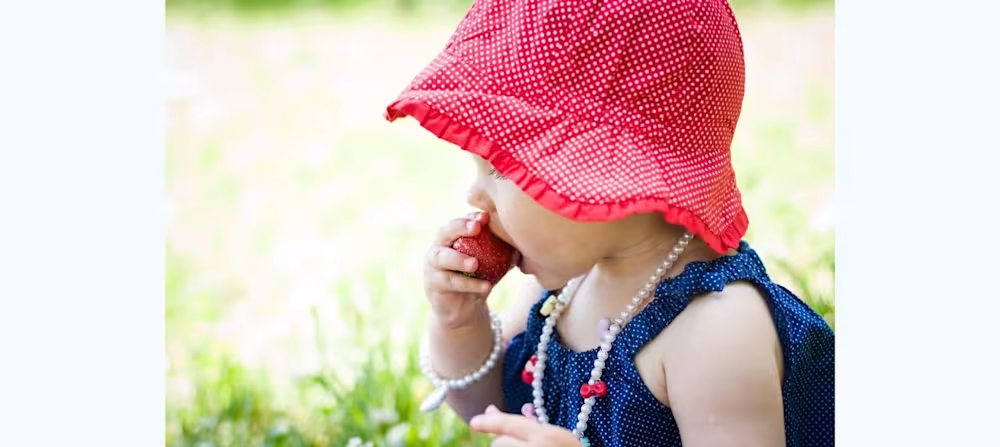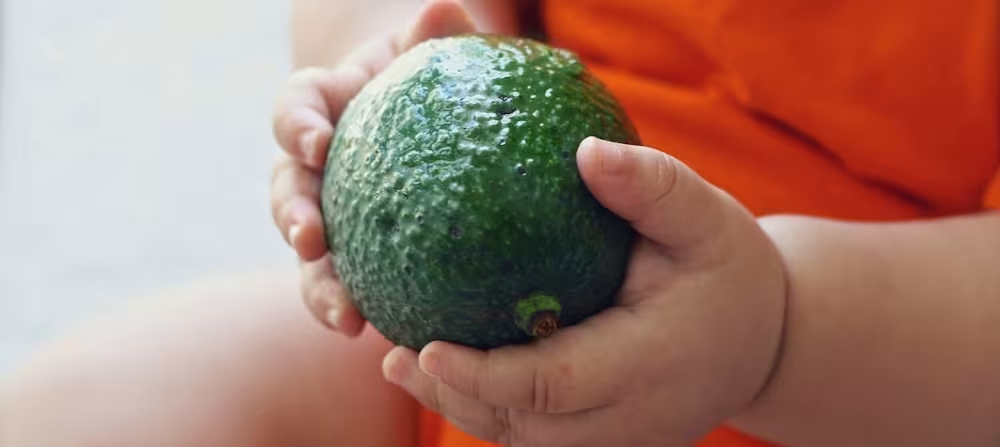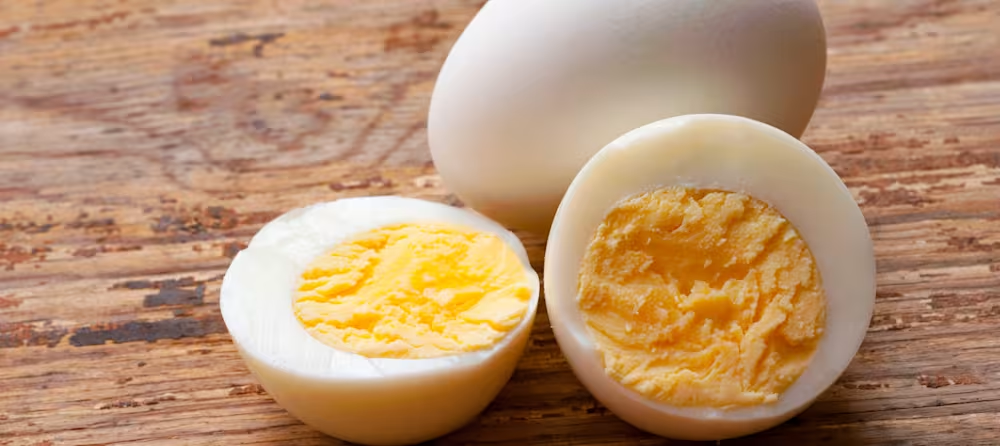Cinnamon for infants: When can you feed cinnamon to babies?
Updated Jan 02, 2026

Cinnamon is one of the oldest and most commonly used spices in the world today. It’s enjoyed in sweet dishes (like pie) and savory meals (like stews), so you may wonder if your baby can eat cinnamon too. Keep reading to discover all you need to know about cinnamon for babies including when they can eat it, nutrition information, and how to introduce it.
Can babies have cinnamon?
Yes, babies can start eating cinnamon around 6 months old, when they begin eating solid foods. Use it sparingly at first and gradually increase the amount as your baby gets used to the flavor. Only serve it added to foods, not on its own as this can lead to coughing, gagging, or vomiting.
Is cinnamon healthy for babies?
Cinnamon may be more popularly known for its culinary uses, but it has historically been used medicinally as well. It has a long list of health benefits [] including being an antioxidant, anti-inflammatory, and antimicrobial. It may also help control blood sugar, lower blood cholesterol, and help reduce the risk of cancer. While more research is needed on cinnamon’s health benefits, it is reasonable to believe cinnamon is healthy for babies.
Cinnamon nutrients for babies
Like many spices, cinnamon contains antioxidants that may help to reduce free radicals in the body []. While free radicals are a normal byproduct of some of our body’s processes, too many in the body may damage cells over time. Additionally, the antioxidants in cinnamon have anti-inflammatory effects [] which can help prevent a variety of chronic diseases.
When can babies eat cinnamon?
Babies can be introduced to cinnamon when they begin solids around 6 months old. Start with small amounts added to foods and assess how your baby reacts. While there’s no need to avoid herbs and spices for babies, stronger flavors may take longer to get used to. In general, keep in mind that it often takes multiple exposures for babies to accept a new food or flavor.
Can babies between 6 to 9 months old eat cinnamon?
Yes, babies between 6 to 9 months old can eat cinnamon. Introducing a baby to cinnamon at this age will help them accept this flavor as they get older and try more foods. Research shows [] exposing children to a wide variety of foods in early childhood can positively impact long-term healthy eating.
If you’d like to note the foods your baby has tried as they begin eating solids, the can help! In the solids tracker in the app, you can log foods from our list and add custom entries too.
Can babies between 9 to 12 months old eat cinnamon?
Babies can continue enjoying foods with cinnamon between 9 - 12 months old. At this age, many babies eat finger foods and may enjoy baked fruit or vegetables seasoned with cinnamon.
Can babies over 12 months old eat cinnamon?
Yes! Babies over can eat cinnamon too. As babies inch toward toddlerhood, they are often exposed to more foods, such as stew or sauces, that may incorporate cinnamon.
How to introduce cinnamon to your baby
Cinnamon is often incorporated into sweet foods such as pies, pastries, and applesauce. But it can pair just as well with other savory and citrus foods. Introducing cinnamon to your baby can be done in many different ways! Start small and incorporate it into as many foods as you like. Once they seem used to the flavor, continue adding it to more dishes as desired.
Serving cinnamon for baby-led weaning
For , you can add cinnamon to foods immediately. Try baking apples with a sprinkle of cinnamon or add it to roasted root veggies such as sweet potatoes, carrots,or beets. While cinnamon is typically safe for little ones, be sure all fruits and veggies are cooked until soft enough to squish easily between your fingers to avoid choking hazards.
Cinnamon puree for babies
Cinnamon is an easy way to boost the flavor profile of a . If you make purees at home, try sprinkling it in with apples, sweet potatoes, or carrots. Check for cinnamon in store-bought versions too. You could also use cinnamon on oatmeal or other baby cereal purees.
Is it a common allergen?
Cinnamon is not one of the , but it is possible to have an allergic reaction to any food. More commonly, babies may develop a red rash [] around the mouth where cinnamon (or other spices) come in contact with the skin. Gently wipe the skin clean with water and the rash should clear up on its own. This is typically a sign of an irritation, not an allergy.
Is it a choking hazard?
Cinnamon is not considered a , especially when served in small amounts as part of a food or dish. However, it is not advised to eat cinnamon on its own as this may cause coughing, gagging, or vomiting. In general, make sure your baby is supervised while eating.
Takeaway
Share article:
Note: The content on this site is for informational purposes only and should not replace medical advice from your doctor, pediatrician, or medical professional. If you have questions or concerns, you should contact a medical professional.
7 Sources
Share article:





